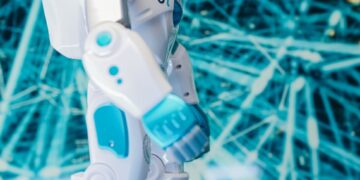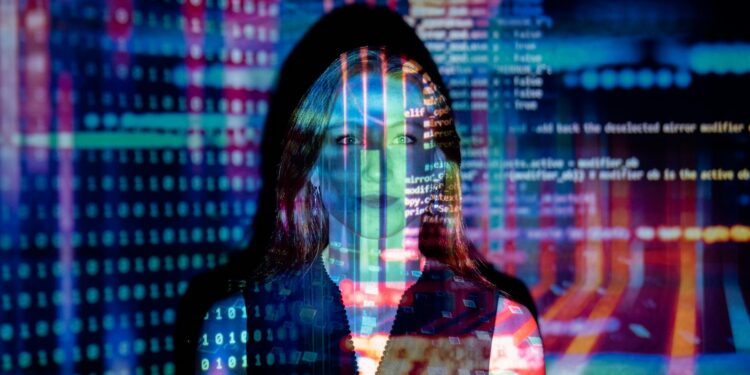Generative AI: beyond automation to industrial transformation
The dawn of generative artificial intelligence marks a pivotal moment in technological evolution. Far from merely optimizing existing workflows, this advanced AI paradigm is fundamentally reshaping the very fabric of industries. It transcends the conventional understanding of automation, moving from repetitive task execution to the creation of entirely new content, designs, and solutions. This profound shift demands a rapid and comprehensive evolution in how businesses operate, how professionals approach their work, and how society interacts with technology itself. As generative AI continues its accelerated development, understanding its transformative power becomes not just an advantage, but a necessity for survival and growth in the unfolding digital era.
The seismic shift from automation to innovation
For decades, automation has been synonymous with efficiency, streamlining processes by replicating human actions with greater speed and accuracy. From assembly lines to robotic process automation, the goal was largely to do *more* of the *same* things, just better. Generative AI, however, represents a radical departure from this paradigm. It isn’t about automating a pre-defined sequence; it’s about generating novel output. This technology has the unprecedented ability to create original content, from text and images to code and complex designs, effectively moving from optimization to true innovation.
Consider the difference: traditional automation might process millions of invoices faster, while generative AI can *write* a marketing campaign, *design* a new product concept, or *generate* lines of executable code from a natural language prompt. This shift from repetitive task execution to creative output is not merely an improvement; it’s a fundamental change in capability. It elevates AI from a tool that helps us do our jobs to a collaborative partner that helps us conceive and realize entirely new possibilities. This capability fundamentally alters value creation across sectors, demanding a re-evaluation of how work is structured and where human effort is best applied.
| Aspect | Traditional Automation | Generative AI |
|---|---|---|
| Primary Function | Executes predefined rules and repetitive tasks | Creates novel, original content and solutions |
| Impact on Value | Increases efficiency, reduces cost for existing processes | Drives innovation, enables new product/service creation |
| Relationship with Human Work | Replaces or augments manual, routine tasks | Collaborates with humans, extends creative capabilities |
Reshaping industries: new paradigms and competitive edges
The transformative power of generative AI is not confined to theoretical discussions; it is actively creating new paradigms and competitive advantages across a spectrum of industries. In marketing and advertising, for example, companies can now generate hyper-personalized ad copy, visual assets, and even entire campaign narratives at unprecedented speed and scale, moving beyond segmented targeting to true individualization. This allows for more engaging and effective communication while drastically cutting production times.
The software development landscape is undergoing a profound metamorphosis. Generative AI tools are now capable of writing significant portions of code, suggesting debugging solutions, and even translating requirements into functional applications. This doesn’t eliminate programmers but transforms their role into one of architects, editors, and innovators, allowing them to focus on complex problem-solving and strategic design rather than tedious coding. Similarly, in product design and engineering, AI can rapidly iterate through thousands of design variations, optimize for specific performance metrics, and even simulate material properties, accelerating innovation cycles from months to days. The healthcare sector benefits through accelerated drug discovery, where AI can hypothesize novel molecular structures and predict their efficacy, dramatically speeding up early-stage research. These are just a few examples demonstrating how generative AI isn’t just improving existing practices, but enabling entirely new ways of operating and competing.
The evolving workforce: skills, roles, and the human element
As generative AI permeates industries, its impact on the workforce is profound, necessitating a rapid evolution of skills and job roles. This isn’t merely about job displacement, but more significantly, about job transformation. Many repetitive, rule-based tasks will indeed be automated, but new roles will emerge, often centered around collaborating with AI. We are already seeing the rise of “prompt engineers,” individuals skilled in crafting precise and effective instructions to coax optimal output from generative models, turning AI interaction into a specialized art form.
The human element becomes even more critical in this new landscape. Skills such as critical thinking, ethical reasoning, creative problem-solving, and emotional intelligence—qualities that AI struggles to replicate—will be paramount. Professionals will need to develop a keen ability to evaluate AI-generated content, discerning its accuracy, bias, and overall utility. The emphasis shifts from merely executing tasks to guiding, refining, and leveraging AI as an intelligent assistant. Lifelong learning and adaptability will no longer be buzzwords but essential survival strategies, as the pace of technological change demands continuous upskilling and a proactive approach to embracing new tools and methodologies. Organizations must invest heavily in training and reskilling their workforces to bridge this evolving skill gap.
Navigating the future: challenges and opportunities
Embracing the generative AI revolution comes with both unparalleled opportunities and significant challenges that demand careful navigation. On the opportunity front, the potential for unprecedented productivity gains, accelerated innovation, and the democratization of creative capabilities is immense. Small businesses can access sophisticated design, marketing, and analytical tools previously exclusive to large corporations. Researchers can tackle complex problems with AI’s ability to process vast datasets and generate hypotheses at incredible speeds. Personalized learning, medicine, and entertainment experiences are becoming increasingly feasible, tailored precisely to individual needs and preferences.
However, these opportunities are shadowed by critical challenges. Ethical concerns loom large, including the potential for AI-generated misinformation, deepfakes, and the perpetuation of biases present in training data. Copyright issues surrounding AI-generated content are complex and unresolved, raising questions about ownership and fair use. The fear of widespread job displacement necessitates proactive policy-making, robust social safety nets, and widespread reskilling initiatives to mitigate economic disruption. Data privacy and security are also paramount, as generative models often rely on vast amounts of personal and proprietary information. To truly harness the benefits of generative AI, societies and businesses must collaboratively develop robust governance frameworks, prioritize ethical AI development, and foster an inclusive ecosystem that supports both technological advancement and human flourishing.
The journey with generative AI is not merely an upgrade; it’s a paradigm shift that redefines our relationship with technology and the very nature of work. It moves us beyond simple task automation into an era where machines can co-create, innovate, and fundamentally reshape industries. This transformative power demands a rapid evolution in our skills, our business models, and our societal structures. Successfully navigating this new landscape requires foresight, adaptability, and a commitment to ethical implementation. Those who embrace generative AI strategically, focusing on human-AI collaboration and continuous learning, will not only survive but thrive, unlocking unprecedented levels of creativity, efficiency, and progress. The future is not just automated; it is intelligently generated, and our collective ability to adapt will determine our place within it.



















